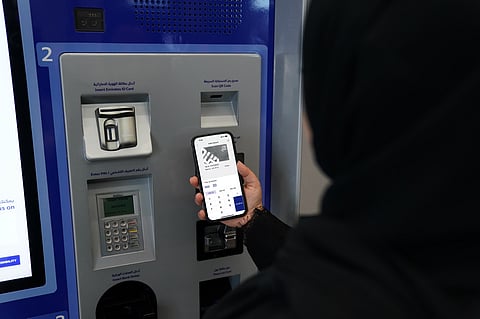Dubai commuters shift to digital payments as nol top-ups go smart
Shift to smart payments drives down cash usage, reduces machine breakdowns

Dubai: Dubai’s Roads and Transport Authority (RTA) has reported a significant shift in how metro and tram users top up their nol cards, with a growing number of commuters opting for digital channels over traditional cash methods in the first half of 2025.
The transition follows a series of RTA initiatives aimed at enhancing convenience and improving user satisfaction, including the roll-out of smart ticket vending and top-up machines, public awareness campaigns, and adjustments to minimum top-up amounts at metro stations.
Digital engagement
As a result, digital engagement surged across the board. Digital top-up transactions via smart ticket vending machines rose by 20% in H1 2025 compared to the same period last year. Meanwhile, total transactions via vending machines dropped by 28%, indicating a clear move away from manual and cash-based interactions.
Cash-based nol top-ups at ticket sales offices fell by 37%, driven by both the increased minimum top-up threshold and the rising popularity of online and mobile payment options. Digital transactions through these offices also saw a slight dip of 6%, as users increasingly turned to self-service smart machines and digital platforms.
Overall, total nol card top-up transactions at ticket sales offices declined by 26% in the first six months of 2025.
Drop in technical issues
Beyond convenience, the shift to digital has helped streamline operations. With fewer physical transactions, the RTA recorded an 80% drop in technical issues at ticket machines and a notable reduction in cash-handling costs.
RTA says the transition aligns with its broader goals of delivering smarter, more efficient public transport services while enhancing commuter satisfaction across Dubai’s mobility network.




